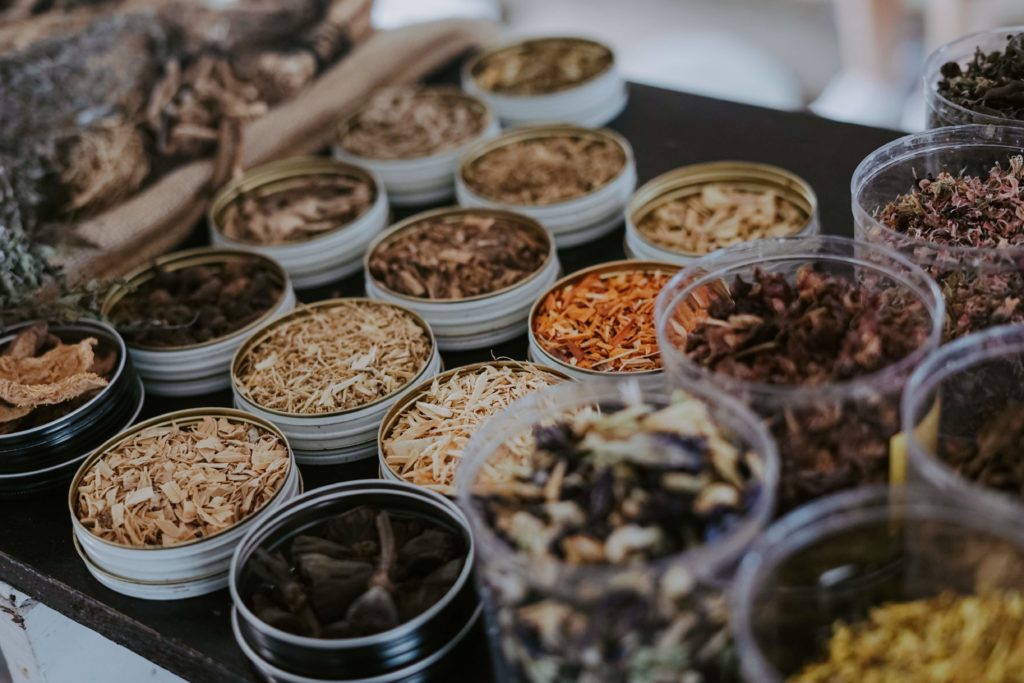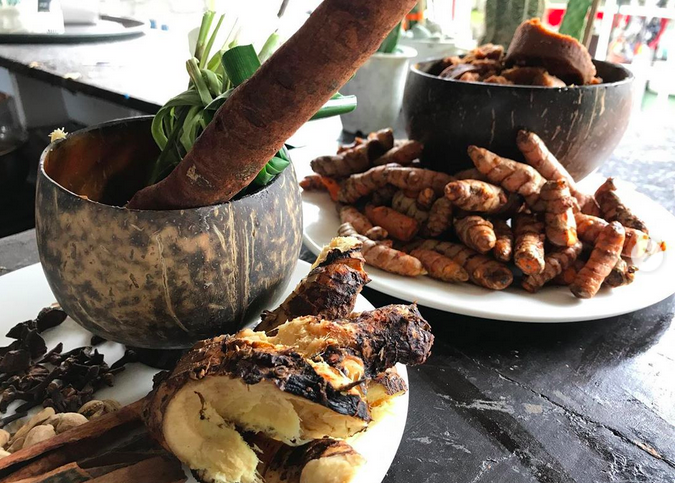
Intermittent fasting is an eating pattern that cycles between periods of eating and fasting. It has less to do with what you eat, and everything to do with when you eat. Intermittent fasting is a big topic in wellness, but are you familiar with the science behind how it works? We teamed up with holistic living experts and educators Nick and Sherri of Kokoro Living to talk all things intermittent fasting and answer the most common questions that come with this practice.
Intermittent fasting has an impressive roster of benefits: from decreasing heart and liver disease, risk of stroke, cancer and other chronic illnesses to promoting weight loss, higher energy levels, better cognitive function—and many more.
Hormones are the secret agents acting behind the scenes of intermittent fasting. All of the above mentioned benefits have to do with hormones, the organs that secrete hormones, and glands that produce and regulate other beneficial hormones in the body. There are two main hormones that are impacted by intermittent fasting: Huan Growth Hormone (HGH) and insulin.
HGH is arguably the most important hormone in the body. It is produced by the anterior lobe of the pituitary gland and is responsible for water regulating, cell reproduction, cell regeneration (long fasts of 16+ hours kill off weak cells to generate new ones), Lipid metabolism (using your fats as the main energy source), bone density, and muscle growth, among more.
Sadly, the production of HGH in the body starts to slow after around 30 years of age and rapidly after 40, which affects energy levels, sleep patterns, and increases fat storage.
When you fast, your body goes into a sort of “fight or flight” mode, whereby it feels the need to utilise hormones and any other beneficial aid during the period where your body isn’t getting food. A few interesting things happen in this state. In order to regulate water properly and to increase energy, the body will start to stimulate HGH. In doing this, it will kill off and eat old cells and start producing new, stronger, healthier cells.
Intermittent fasting causes the body to cleverly switch to Ketosis—a process wherein the body uses fats for energy, as glycogen (energy from carbs) stores are already depleted. The secret is in the math behind the process: 1 gram of Carbohydrates and Protein yields 3 Calories of energy. Compare that to 1 Gram of fats, which yields 9 Calories of energy.
You want your body to be programmed to use fats as your fuel and NOT glycogen from carbohydrates for two reasons. First, carbohydrates spike your insulin levels, basically telling the body to store fat. Second, because you receive 3 times the amount of energy from fats, insulin also makes one very tired and lethargic (hence why you feel sleepy after a very big pizza or pasta dish). This leads me to the next topic and the huge contributing factor to fat loss when fasting:
High insulin levels not only make you feel lethargic, but basically tell the body to inhibit lipolysis (aka fat burning). The organ responsible for secreting insulin is the pancreas (more specifically, the Beta cell within the pancreas). If your diet is high in sugar and simple carbohydrates (like white bread), it strains the pancreas and begins to impact insulin production in the body.
Insulin’s job is to allow a cell to absorb blood glucose—basically to keep your blood’s sugar levels from spiking too high. Insulin resistance happens when the cell can’t absorb all the blood sugar, causing similar symptoms to diabetes. We don’t want that. Intermittent fasting helps promote insulin sensitivity, so the cells can absorb nutrients properly due to proper absorption of blood glucose.
HGH and insulin are the two main hormones that contribute to increased energy and burning fat. Increased HGH will also help you sleep very well. I could go on about the positive hormonal ripple effect of intermittent fasting throughout the body…instead, let’s move onto what you need to look out for when fasting.

Let’s debunk a common misconception: Just because you are not eating solid food doesn’t mean you’re intermittent fasting!
For example, if you drink juice, have milk with your tea, or drink a protein shake…you’re not fasting. In fact, even if you just taste something and don’t even swallow it, you have broken your fast! You see, your saliva acts as a messenger for the gut. It will alert the pancreas to get ready with insulin, as there is food coming. The pancreas then prepares to regulate blood sugar, causing a slight insulin spike which will inhibit fat burning.
And that is it!
Coffee is a great one because it actually tells your body to oxidise fat cells for energy and increases metabolism, so having a coffee before any form of exercise in the morning is very beneficial.
When fasting, training in the fasted state will bring the best results. Another old misconception is that you need to eat before you work out for energy—this is wrong when it comes to intermittent fasting for two reasons. First, you will stop the fat burning process that your body is already using as an energy source. Second, eating before a workout will make your insulin spike. In reality, having a banana before a workout is one of the worst things you can do! The energy will be short-lived and your fat-burning state will come to a halt.
Instead, aim to work out during the last hour of your fast, so you can break your fast post-workout to feed your muscles. This will not only keep muscle tone, but also increase muscle metabolism, meaning you will have a higher fat burning rate while you rest (basal metabolic rate).
As the body gets used to the intermittent fasting program (after 3 – 7 days), you will notice that you have a lot more energy when working out.

Periods of intermittent fasting that last 12 hours or more will have a positive effect on insulin, activating using fat cells as fuel. However, a 12-hour fast is not enough to stimulate HGH production.12-hour fasting is a great place to start, and you can gradually add more hours to your fasting period.
When you increase intermittent fasting periods to 16 hours or more, you start getting the hormonal benefits previously mentioned—HGH production, cell regeneration, increase in bone density and muscle growth, etc.
There are no specific times to start fasting—you just need to count the hours of your fast from the last previous calorie. For example, if you finish your glass of wine at 22:00 , you may eat at 14:00 the following day (for a 16-hour fast). This may sound crazy, but once your body is used to this, you are hardly hungry during the fast and your energy levels and mental focus is considerably better.
Personally, I do a 16-hour fast everyday through the night from 20:00-12:00. Once a week or once every two weeks, I do an 18- to 20-hour fast.
It’s best to break a fast with a lean protein like egg whites, nuts, Greek yoghurt (never fat-free!), or some fruit (strawberries, apple, and grapefruit are good—stay away from watermelon and banana in the morning).

Here’s what not to do after 12+ hours fasting: sit down to a massive carbohydrate bomb, like pasta, pizza or bread. This will shock the body, causing a big insulin spike as your body will be sensitive after having such low insulin levels (a good thing!) for the duration of your fast.
The great thing about intermittent fasting is that the restrictions on food (other than what you break your fast with) are quite lax. Intermittent fasting decreases your total caloric intake, increasing your metabolism and programming your body to burn fat for fuel. This means (within reason) you can pretty much eat what you like!
I would stay away from foods high in sugar—but having a treat every now and again is not bad! Try to eat foods dense with good calories, balancing protein, carbohydrate and fat intake.

Call me a rebel, but I think having a “cheat day” once or twice a week is actually a good thing. Intermittent fasting causes your body to get used to eating a certain amount of calories a day and at certain times. When you put an influx of calories into your diet (hello cheat day!), you ramp up your metabolism. Returning to fasting and eating clean the next day with a heightened metabolic rate ensures you do not plateau.
Just remember, cheat days only work in your favor if you have been eating relatively well during the week. If you have been eating pizza everyday, having two pizzas doesn’t count as a cheat day…you’ve been cheating the whole time 🙂
This is something that Sherri from Kokoro Living and I both have in common—we LOVE drinking wine. We used to share a bottle every night with dinner. However, this has become somewhat of our cheat too. We try to restrict wine to 1 or 2 days per week now, and it has worked very well. Each glass of wine contains between 130 and 150 calories—empty calories that have no desired effect on the body. If possible, try to treat wine like a special occasion, imbibing 1-2 times a week.
Aside from the many holistic benefits of intermittent fasting, one of my favorite aspects is that it basically hacks the body into passive fat-burning mode. While the science behind it is quite complex, practicing intermittent fasting is quite easy. Simply choose the periods of fasting, and commit! Once you break your fast, eat as you normally would, and be sure to work in a Cheat Day here and there.
Want to know my intermittent fasting schedule? Click here for my full Slow Detox Program to lose 8 kilos in 8 weeks. If you have any questions about intermittent fasting or would care to share your experience, please don’t hesitate to reach out to me or Nick and Sherri from Kokoro Living!